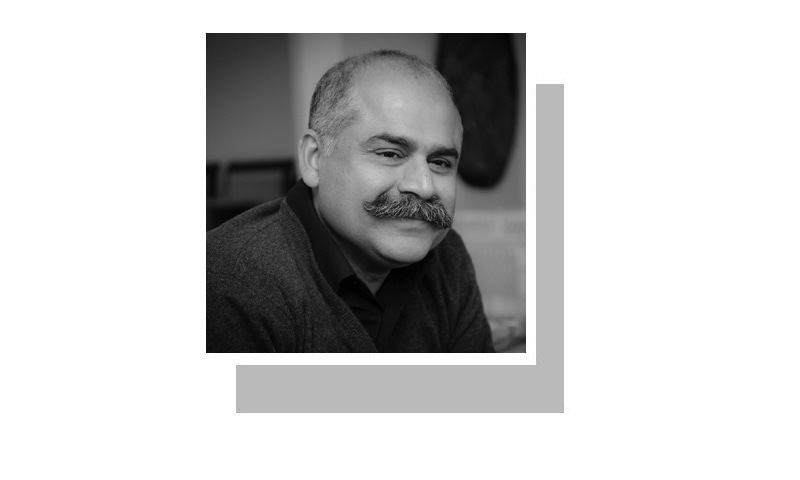IF you have heard the qawwali Kangna by Farid Ayaz and Abu Muhammad, it is impossible not to notice a Persian interlude which goes: “Ma ra ba ghamza kusht o qaza ra bahana sakht” (Am struck by the beloved’s coquettish ways; death is but an excuse) The famous ghazal was penned by the 12th-century poet Nizami Ganjavi. It has been sung by dozens if not hundreds of singers wherever Persian is understood including by Iqbal Bano in our neck of the woods.
Nizami’s birthplace Ganja was part of the Persian Empire back then and came under Russian control half a millennia later. Though the Republic of Azerbaijan was proclaimed only in 1918 this did not deter the Azeris from embracing and celebrating him by establishing the Nizami Museum of Literature in Baku, the country’s capital and putting his picture on a currency note of 500 manat, among myriad other commemorative initiatives.
Nazrul Islam, Gul Khan Naseer, Ameer Hamza Shinwari, Shaikh Ayaz, Nasir Kazmi, Ahmad Faraz, Iftikhar Arif, Firaq Gorakhpuri, and Amrita Pritam were all born in undivided India. Any reason why they should not be owned equally across the Pakistan-India border, and the wider South Asian region? The most likely answer will be ‘no reason’, other than people’s lack of curiosity and any systematic effort on the part of governments and civil society to introduce women and men of letters across the region.
Remember, we are not talking about the practitioners of poetry and prose themselves, nor the ‘literati’, (some of whom get lucky and learn about outstanding writers and scholars belonging to other countries at conferences and literary festivals) but your everyday folk.
Are any major landmarks named after Ismat Chughtai or Intizar Husain?
Forget about putting their pictures on currency notes, are any major landmarks named after Majid Amjad, Ismat Chughtai, or Intizar Husain — even though they have fulfilled that most horrendous South Asian standard of being acknowledged, ie dying? Other than Ahmed Nadeem Qasmi to whom a major thoroughfare in Islamabad has been befittingly dedicated, no one has fared better than getting some obscure service lane named after them, if at all. It’s good that many sectors in Karachi’s Defence area have been named after Hafiz, Saadi and Rumi. Isn’t it time to name a boulevard at least after Mushtaq Ahmed Yusufi, Zehra Nigah and Kishwar Naheed?
Presenting an exhaustive and inclusive list of present-day poets of the region we live in would be a difficult if not an impossible task; however, one hopes that people, especially the youth, put their tech-savvy ways to good use and try finding out through the internet the incredible talent and personal histories of the following: Sri Madhav Prasad Ghimire, rashtra kavi (national poet) of Nepal. His first literary work Gyanpushpha was published in Gorkhapatra when he was only 14. He later went on to co-edit the same publication.
Abdus Shukur Al Mahmud, a Bangladeshi poet, novelist and short story writer was born in Morail village of Brahmanbaria district in present-day Bangladesh. He is considered to be the greatest Bengali poet of the 20th century. Alokeranjan Dasgupta is another Bengali poet. Born in Calcutta, he migrated to Germany where he teaches at the South Asia Institute of the University of Heidelberg. He has 20 books to his credit. Dasgupta has also translated major works of literature from French and German into Bengali and from Bengali into English and German.
Wasef Bakhtari is a renowned poet from Afghanistan. He writes in Persian and Dari. He now lives in the US. Abdul Bari Jahani is also an Afghan poet, novelist and a journalist. He writes in Pashto and has the distinction of writing Afghanistan’s national anthem. Both Bakhtari and Jahani have spent time in Pakistan during the long years of turmoil in Afghanistan.
Mohammad Reza Shafiei-Kadkani, also known by his pen-name M. Sereshk, is among the most prominent poets of Iran today. He teaches at Tehran University and is a leading literary critic with a deep interest in modern Persian poetry. Garous Abdolmalekian is a young Iranian poet. Though still shy of his 40th birthday, he has authored five books already which have been translated into French, German, Spanish and Russian. He edits a literary publication and teaches poetry at various institutions in Tehran.
The catalyst for this piece was a question addressed to an undergrad class at a private university about arguably the most well-known Pakistani poet today. They did not know about him. Even when his name was mentioned, ‘never heard of him’, was the response. Allama Iqbal’s name had to be mentioned to save the situation. Sure, they knew him, but muddled the names of his books. They are otherwise nice, intelligent kids, growing up in an economy in transition and a society where pursuit of neither the sciences nor the various forms of art is a priority.

Comments
Post a Comment